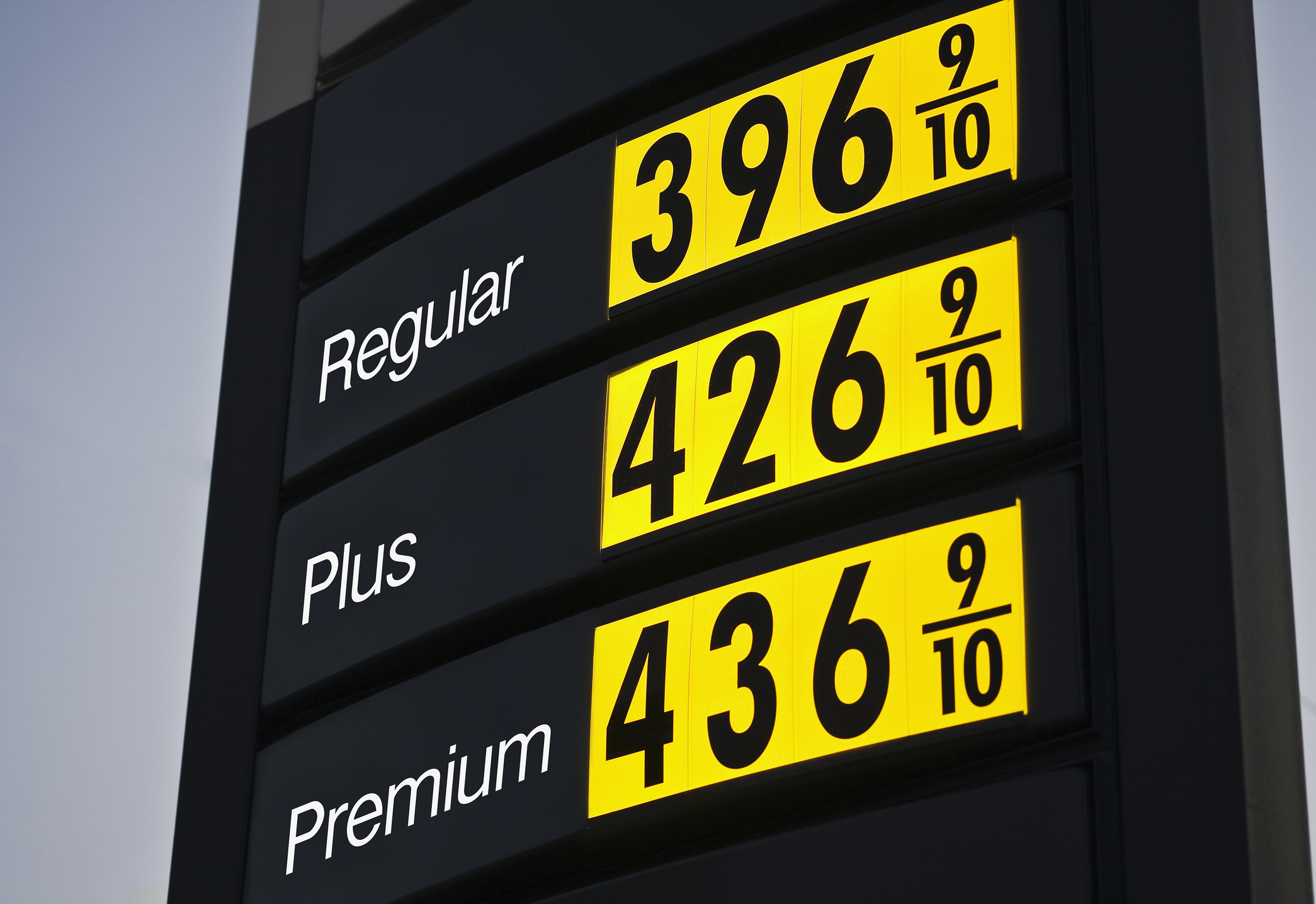Hybrids Worth the Price
From a dollars-and-cents perspective, the decision to buy a hybrid is never simple.

Profit and prosper with the best of Kiplinger's advice on investing, taxes, retirement, personal finance and much more. Delivered daily. Enter your email in the box and click Sign Me Up.
You are now subscribed
Your newsletter sign-up was successful
Want to add more newsletters?

Delivered daily
Kiplinger Today
Profit and prosper with the best of Kiplinger's advice on investing, taxes, retirement, personal finance and much more delivered daily. Smart money moves start here.

Sent five days a week
Kiplinger A Step Ahead
Get practical help to make better financial decisions in your everyday life, from spending to savings on top deals.

Delivered daily
Kiplinger Closing Bell
Get today's biggest financial and investing headlines delivered to your inbox every day the U.S. stock market is open.

Sent twice a week
Kiplinger Adviser Intel
Financial pros across the country share best practices and fresh tactics to preserve and grow your wealth.

Delivered weekly
Kiplinger Tax Tips
Trim your federal and state tax bills with practical tax-planning and tax-cutting strategies.

Sent twice a week
Kiplinger Retirement Tips
Your twice-a-week guide to planning and enjoying a financially secure and richly rewarding retirement

Sent bimonthly.
Kiplinger Adviser Angle
Insights for advisers, wealth managers and other financial professionals.

Sent twice a week
Kiplinger Investing Weekly
Your twice-a-week roundup of promising stocks, funds, companies and industries you should consider, ones you should avoid, and why.

Sent weekly for six weeks
Kiplinger Invest for Retirement
Your step-by-step six-part series on how to invest for retirement, from devising a successful strategy to exactly which investments to choose.
When Kiplinger's looked at the costs versus benefits of buying a hybrid two years ago, we concluded that most drivers would see long-term savings only with the smallest, most fuel-efficient models -- namely, the Toyota Prius and Honda Civic Hybrid.
| Row 0 - Cell 0 | Does It Pay to Buy That Hybrid? Find Out |
But at that time, gas cost only $2.30 a gallon. Now that gas prices have hit the stratosphere, more hybrids make financial sense. But with some hybrid models, you won't even come close to getting back the premium you pay.
To reach that conclusion, we compared the five-year ownership costs of 13 hybrids with those of their gas-engine counterparts. Our math is based on actual transactions, rather than sticker prices, and assumes a 15% down payment, a five-year loan and 15,000 miles of driving a year -- 55% of those at city speeds. Vincentric supplied the data.
From just $107.88 $24.99 for Kiplinger Personal Finance
Become a smarter, better informed investor. Subscribe from just $107.88 $24.99, plus get up to 4 Special Issues

Sign up for Kiplinger’s Free Newsletters
Profit and prosper with the best of expert advice on investing, taxes, retirement, personal finance and more - straight to your e-mail.
Profit and prosper with the best of expert advice - straight to your e-mail.
Besides sucking less gas, many hybrids save on taxes and fees because they qualify for a one-time tax credit, which we took into account. A factor that we couldn't include is a potential discount on your car insurance. Travelers, for example, offers a 10% discount for hybrids in most states.
Best and worst. At the top of the list for value is the 2008 Saturn Vue Hybrid, which is projected to cost $2,500 less over five years than the gas-engine Vue XE. The numbers also favor the Nissan Altima Hybrid ($2,100 less than the Altima S), the Lexus RX 400h ($1,100 less than the RX 350) and the Honda Civic Hybrid ($1,000 less than the Civic EX). The Altima Hybrid is sold in only eight states -- California, Connecticut, Maine, Massachusetts, New Jersey, New York, Rhode Island and Vermont.
It's tough to justify buying a car at the bottom of the list. The Lexus LS 600h L costs $35,000 more in total costs than the LS 460 L, mainly because of its $32,000-higher sticker price. The Lexus GS 450h costs $16,900 more than the GS 350, and the Chevrolet Tahoe Hybrid costs $10,700 more than the Tahoe LT.
The middle group of hybrids has ownership costs that run from slightly to significantly higher. The Ford Escape Hybrid costs $200 more over five years than the Escape XLT four-cylinder; the Chevrolet Malibu Hybrid costs $400 more than the Malibu LT; and the Saturn Aura Hybrid costs $1,700 more than the Aura XE.
The Toyota Highlander Hybrid (which has four-wheel drive) will cost $2,200 more to drive than the Highlander base four-wheel-drive model; the Toyota Camry Hybrid will set you back $2,700 compared with the Camry LE.
You could still come out ahead with these in-between hybrids if gasoline prices rise. For example, with the Ford Escape Hybrid, you'd erase the price premium if gas were to average $4.50 a gallon.
What about the Toyota Prius? For many Americans, the white-hot hybrid symbolizes green driving. Many dealers have months-long waiting lists and are charging $1,000 to $1,500 more than the $23,135 sticker.
Compared with what? Even so, if you look at the total ownership cost over five years, the Toyota Prius ties the Honda Civic Hybrid for least expensive ($39,780). The Nissan Altima Hybrid ($40,730) is next cheapest, followed by the Chevy Malibu ($44,810), Toyota Camry ($45,140), Ford Escape ($45,860) and Saturn Vue ($46,120) hybrids.
But hybrids aren't the cheapest rides. A number of nonhybrid gas sippers cost less to own over five years. One of the best values is the Honda Fit, which costs $35,650 to operate over five years. The Nissan Versa costs $36,520. If you want more room, consider the Toyota Matrix, which is projected to cost $39,680 over five years.
From Kiplinger's Personal Finance magazine, October 2008
Profit and prosper with the best of Kiplinger's advice on investing, taxes, retirement, personal finance and much more. Delivered daily. Enter your email in the box and click Sign Me Up.

Mark was the editor of Kiplinger's Personal Finance magazine from July 2017 to June 2023. Prior to becoming editor, he was the Money and Living sections editor and, before that, the automotive writer. He has also been editor of Kiplinger.com as well as the magazine's managing editor, assistant managing editor and chief copy editor. Mark has also served as president of the Washington Automotive Press Association. In 1990 he was nominated for a National Magazine Award. Mark earned a B.A. from University of Virginia and an M.A. in Writing from Johns Hopkins University. Mark lives in Washington, D.C., with his wife, and they spend as much time as possible in their Glen Arbor, Mich., vacation home.
-
 Dow Adds 1,206 Points to Top 50,000: Stock Market Today
Dow Adds 1,206 Points to Top 50,000: Stock Market TodayThe S&P 500 and Nasdaq also had strong finishes to a volatile week, with beaten-down tech stocks outperforming.
-
 Ask the Tax Editor: Federal Income Tax Deductions
Ask the Tax Editor: Federal Income Tax DeductionsAsk the Editor In this week's Ask the Editor Q&A, Joy Taylor answers questions on federal income tax deductions
-
 States With No-Fault Car Insurance Laws (and How No-Fault Car Insurance Works)
States With No-Fault Car Insurance Laws (and How No-Fault Car Insurance Works)A breakdown of the confusing rules around no-fault car insurance in every state where it exists.
-
 10 Things You Should Know About Buying a Car Today, Even if You've Bought Before
10 Things You Should Know About Buying a Car Today, Even if You've Bought BeforeIf buying a car is on your to-do list, and it's been a while since you went shopping for a new one, this guide will help avoid any nasty shocks in the showroom.
-
 Get the Best Car Deal in Retirement: Here's the Trick
Get the Best Car Deal in Retirement: Here's the TrickPlanning on shopping for a new car this Labor Day weekend? Here’s how to haggle for a better price, even though you're retired.
-
 7 Gas-Saving Tips That Actually Work
7 Gas-Saving Tips That Actually WorkThese are gas-saving tips that will actually work for you and your car this year.
-
 Want to Lease an EV? The Tax Credit 'Loophole' for That Is Going Away Soon
Want to Lease an EV? The Tax Credit 'Loophole' for That Is Going Away SoonTax Credits If you are deciding whether to lease or buy an electric vehicle, here is what you need to know about how the EV lease tax credit works now that it will be eliminated under Trump's new tax law.
-
 Car Buying in a Topsy-Turvy Market
Car Buying in a Topsy-Turvy MarketYou need a new car? Good luck with that! What should you do? We've got some answers.
-
 Watch Out for Flood-Damaged Cars from Hurricane Ian
Watch Out for Flood-Damaged Cars from Hurricane IanBuying & Leasing a Car In the wake of Hurricane Ian, more flood-damaged cars may hit the market. Car prices may rise further because of increased demand as well.
-
 Car Buyers: The 3-Day Grace Period Is Just a Myth!
Car Buyers: The 3-Day Grace Period Is Just a Myth!Buying & Leasing a Car Many car buyers think they have three days after making a purchase to return a car. Here’s where they’re going wrong, and what they should do instead to get a decent used car.
-
 PODCAST: Car-Buying in an Inflated Market with Jenni Newman
PODCAST: Car-Buying in an Inflated Market with Jenni NewmanBuying & Leasing a Car With cars both scarce and expensive these days, what to do if you want – or need – a new ride? Car-buying strategist Jenni Newman of Cars.com shares some tips. Also, more on the magical 9% savings bond.